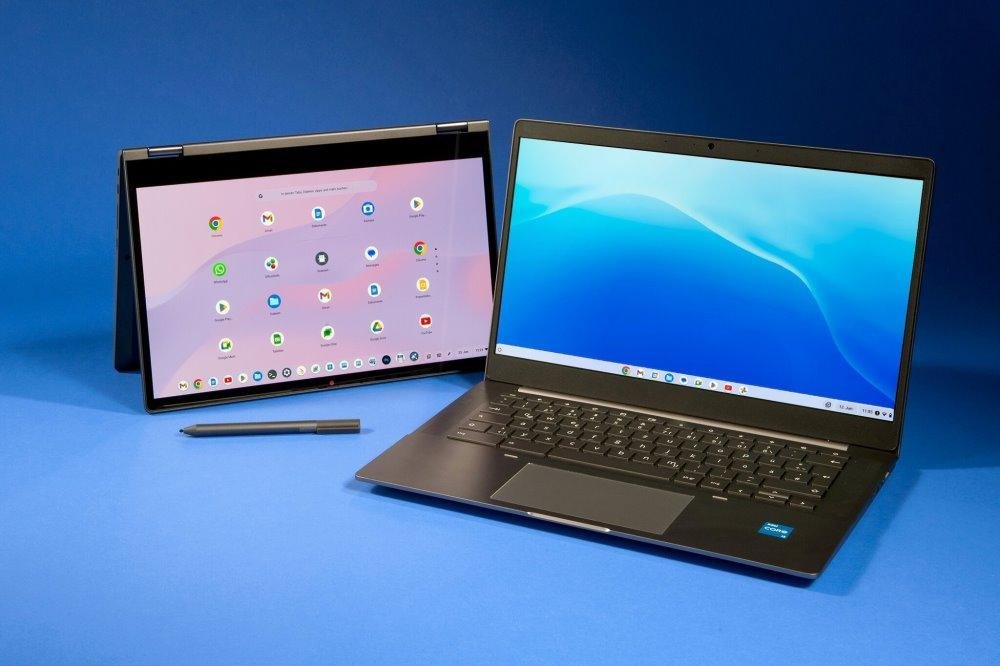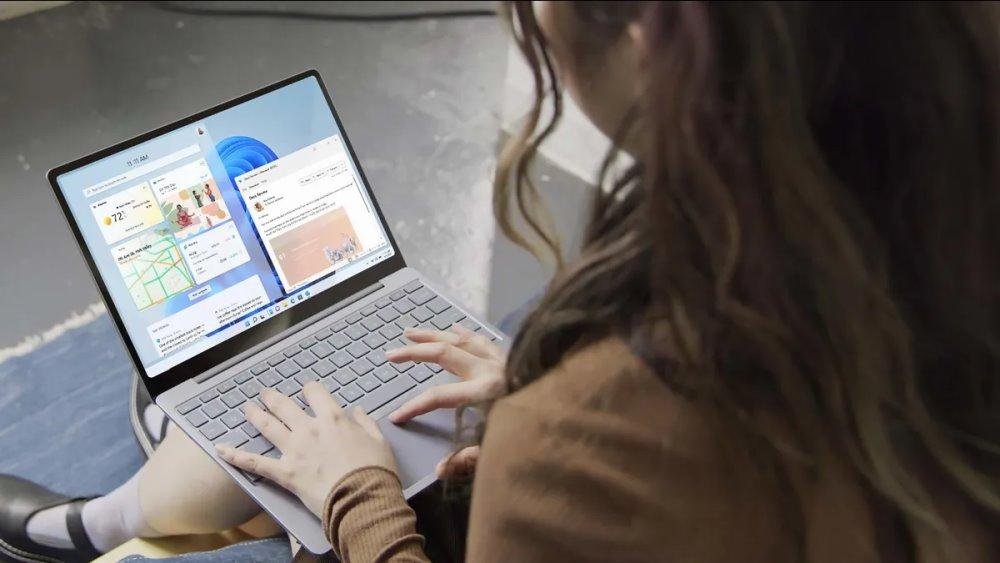Choosing a new laptop is not easy with the great offer that exists today. We can find solutions for all tastes, needs and pockets. The election has become a little complicated with the arrival of the Chromebookwhich look like laptop conventional, but that have certain differences With these and precisely in this article we are going to explain them to you.
What is a Chromebook? At first glance it is nothing more than a laptop, but it has certain differences. The first and most notable is that these computers have the operating system installed Google ChromeOSwhich relies heavily on the Chrome browser as its user interface.
The operating system is designed to use applications of the Chrome Web Store and of the Google Play Store (the Android app store). Here there are applications that allow us to cover all the basics, such as office automation, basic photography and video editing, light games and much more. Essentially, a Chromebook is like a tablet but in a portable format.
It focuses mainly on working in the cloud. A constant Internet connection is not necessary, but some functions and features may not work if we are not connected.
Chromebook Features
Indeed, Chromebooks are still laptops, although they have features that make them an independent division. Let’s see these aspects in a simple way.
- Processor: They usually have fairly basic processors. We can find ARM architecture processors and entry-level Intel processors, occasionally a low-power Core i5 model.
- Graphic card: They never have a dedicated graphics card, it depends solely and directly on the graphics integrated into the processor.
- RAM: Normally, they have a maximum of 8 GB of RAM, especially because they do not need it since they are more efficient in use than Windows laptops.
- Storage: Mostly, they use eMMC memories soldered on the motherboard itself. Some higher-end models can mount SSD drives to improve performance.
- Screen: It is common for these systems to make use of a touch screen (especially we can see this in convertible models), and generally you will not see any Chromebook with a higher resolution than Full HD.
- OS: It is based on Chrome OS, which is focused on the cloud. It is a kind of hybrid between Android and the Google Chrome interface, designed for productivity, studies and entertainment.
- Internet: It is not necessary to have a constant Internet connection, but it uses an operating system very focused on the cloud. It is recommended to have a connection to get the most out of it.
- Dedicated key: It does not have the Windows key, it is changed to a so-called “All Key”. It is used to quickly find files, applications or information on the Internet. It makes it easier to access menus and manage active windows, gaining efficiency.
These specifications are because the Chrome OS operating system is more focused on education and everyday tasks such as browsing, multimedia playback, and the like. Therefore, Chromebooks are quite common among students who want a computer to study.
Limitations on Chromebooks
If we focus on the average use of a Windows laptop, the differences are minimal, but Chromebooks have important limitations due to their features. The main ones are:
- Limited storage capacity: Most affordable models usually have between 64 GB and 128 GB of eMMC memory. It is very little capacity, although we can expand it with external memories or with the cloud. If you want a higher capacity model with an SSD, the price skyrockets.
- Much dependence on the Internet: There are many features and capabilities that are only available with active Internet. What’s more, if we store documents in the cloud, to access them we will inevitably have to have an Internet connection.
- Inability to play: We will only have access to casual games from the Play Store, not being able to run other types of games. It is not a problem with the games themselves, but because of the limitations of the Chromebook and the compatibility of the operating system. Basically, only mobile games work.
- Certain program incompatibilities: Most common applications are probably available on Chromebooks. Likewise, more specific applications, such as photo and/or video editing software, may not have a version for this operating system. As with games, only mobile applications.
- Limited connectivity: This type of laptop has fairly basic connectivity. Normally, they usually have a couple of USB ports to connect peripherals or pen drives. They also usually integrate a card reader, in case we want to expand the storage capacity. Rarely do these types of systems have a video connector for external displays.

Differences and similarities between a laptop and a Chromebook
Something that we have mentioned is that, in the end, a Chromebook is still a laptop with certain peculiarities. This means that there are elements that are common and others that are particular to these systems. Let’s look at them in more detail.
Common elements
The first thing we will see are the common characteristics between a “conventional” laptop and these systems based on the Google operating system. These are:
- Design: If you were to put a laptop next to a Chromebook, with no markings and no data, it would be impossible to tell them apart, whether open or closed. In the end, physically they are practically the same, I leave out some very superficial details. Note that the dimensions and weight do not differ excessively either.
- Applications: Actually, the applications that are not available for Chromebooks are few and very specific. If we talk about general elements such as browsers, Microsoft Office or day-to-day utilities, they are all accessible. In addition, from both types of systems we can access Google services.
- Autonomy: There is little difference in this sense. It is true that systems based on Chrome OS can be more efficient and have a slightly longer battery life, but there is no big difference.
- Security: Windows and Chrome OS are two very secure operating systems in general. We may face the same risks at any given time, but it is not significant.

There are common features, regardless of one type of system or another, and the operating system. But, at the same time, there are big differences that we will see below.
Main differences
It would be the same as fingers and thumbs. All thumbs are fingers, but not all fingers are thumbs. Therefore, we can say that all Chromebooks are laptops, but not all laptops are Chromebooks and it is precisely due to these differences:
- Non-expandable memory: Chromebooks typically have RAM and storage soldered onto the motherboard itself, making expansion very difficult. In addition, the memory in these systems is usually eMMC type, which is much slower than that used in laptops, which are SSDs. Also the storage capacity is usually extremely limited, as it is a system more focused on the cloud.
- Very limited power: Normally, they use low-power processors that greatly limit performance. Furthermore, these systems never have dedicated graphics and those integrated into the processors are designed to output video and little else.
- OS: The Chrome OS operating system is cloud-focused and supports smartphone-like applications. Although it is quite light and efficient, there is a big cut in features and lack of compatibility with many useful tools that we can use on a daily basis.
- Compatibility: Problems may occur with certain devices that normally focus on Windows systems. The normal thing is that the incompatibility is partial, allowing use but not exploiting all the capabilities or options of the device.
- Price: One of the great strengths of Chromebooks is that due to their features, they are usually quite affordable. Precisely, they are intended to be affordable so that students can acquire it and use it for their training.
- Weight: Due to their components, these systems are usually lighter and, therefore, more comfortable to transport.
With all this information that we give you, you already know the difference between a “conventional” laptop and a Chromebook. Now you can choose the option that interests you most according to your needs and budget.

